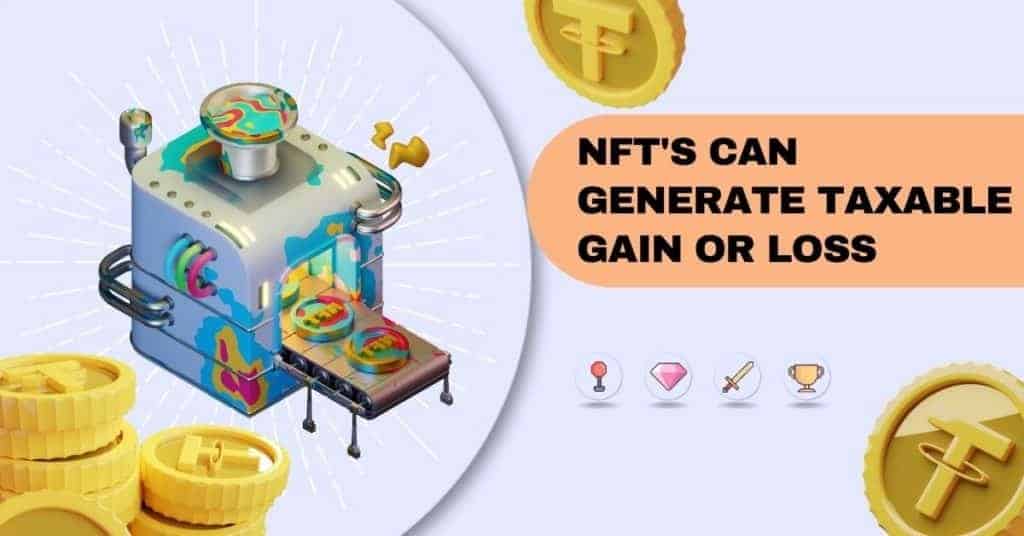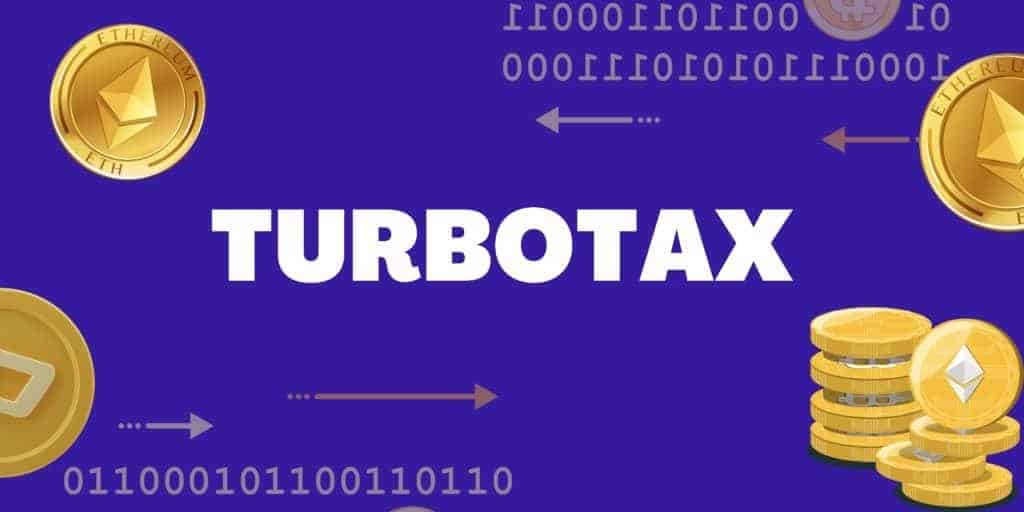2021 was a huge year for crypto. According to a study by Grayscale Investments, half of the current Bitcoin investors bought within the last 12 months.
At the beginning of this year, the crypto market was valued at more than $2.5 trillion. While many people view cryptocurrencies as a new way to pay for things, others are investing in crypto in the same ways they’d invest in the stock market.
The appeal of these decentralized forms of banking is multifaceted, but the fact they operate without the involvement of big banks or other central authorities is a big part of the appeal.
According to the IRS, cryptocurrencies are now considered “property”. This means that capital gains and losses must be reported and that you’ll pay taxes on the gains and income you earn through your investments.

For the majority of crypto-users, tax software has made it simple to create a record of their transactions and lodge tax returns without much drama. But things can start to get more complicated the more active you are in the crypto space.
Crypto tax software has made it simple to create a record of their transactions and lodge tax returns without much drama and this is why tax software is an indispensable tool in your arsenal to figure out where you’re treated best if you hodl a lot of cryptocurrencies.
It’ll help you get the most out of your tax return while avoiding the headache and chaos of being unprepared come tax time.
In this article, we’ve found five of the best crypto tax software providers on the market. We’ll take a look at their features and pricing to help you decide which brand will best suit your needs.
Cryptocurrency Tax Basics
Before we did deeper into crypto taxation, let’s discuss some basics you must be aware of:
- The IRS considers cryptocurrency to be a property which makes it taxable when you incur capital gains or losses via buying, selling, or exchanging
- You report these activities using tax forms
- It’s important to keep records of your transactions throughout the year
- Owning a cryptocurrency for a year or less prior to spending or selling will usually be considered short-term capital gains
- Holding a cryptocurrency for over a year before you sell or spend it would usually be considered a long-term capital gain
- Short-term capital gains and losses are taxed the same as ordinary income: 10% – 37%
- Long-term capital gains and losses are usually taxed at rates of 0% -20%
How is crypto taxed?
In the United States, cryptocurrencies are considered digital assets. This means that your crypto will usually be treated in the same way as stocks or bonds by the IRS. The money gained through crypto activities may be taxed as capital gains or income, depending on how you acquired your currency and for how long you’ve had it.

How you used your crypto in the financial year will determine whether your transactions will be considered taxable or non-taxable events.
Non-taxable events
- Purchasing crypto with cash – tax is usually incurred later after selling for a profit
- Donating crypto to a charity or non-profit
- Receiving crypto as a gift
- Giving crypto as a gift (up to $15,000 a year)
- Transferring crypto between your own wallets/accounts
Taxable as capital gains
- Trading or selling crypto for cash
- Selling your crypto for more than you paid for it
- Spending your cryptocurrencies on goods or services
Taxable as income
- Being paid in crypto – taxed according to your income tax bracket
- Receiving crypto for goods or services
- Crypto mining
- Staking rewards
- Hard forking – can depend on how you’ve used the asset
- Receiving airdrop
- Receiving rewards and incentives
What if I’m holding cryptocurrency?
If you’re holding onto your crypto you won’t incur any immediate gains or losses which means that you won’t be taxed until you sell the asset for cash or another cryptocurrency.
A note on a cost basis
The cost basis is usually set by the price you paid for your cryptocurrency. If you received your crypto via mining or staking the cost basis is usually set by the fair market value at the time of receipt. Gifted cost basis is set by the fair market value plus the basis of the individual who transferred it to you.
Cryptocurrency as an investment
The act of purchasing cryptocurrency isn’t taxable on its own. You can buy and hold crypto for an unlimited length of time without having to pay taxes on it, even if its value has increased over time.
You will need to pay taxes on your crypto when you sell or trade and experience gains in your taxable accounts. This isn’t true if you trade crypto in a tax-free account such as an individual retirement account.

To clarify, if you bought $100 of Bitcoin and sold it later on for $120 you would have to report a gain of $20 on your taxes. Distinguishing between long-term and short-term capital gains will have to do with how long you’ve held onto the cryptocurrency.
If you sold your $100 worth of Bitcoin for $80 you’d incur a loss that can offset your other gains or a maximum of $3,000 of your taxable income each year.
Unused losses can be rolled forward to offset future gains or a maximum of $3,000 of your taxable income.
NFTs
As you probably already know, NFTs can take many different forms like digital artwork, memes, music, or in-game items. While they aren’t strictly “currency” tax rules for buying NFTs are comparable.
Buying an NFT with cash can be like buying other assets in that it’s not a taxable event by itself. If you buy an NFT with another digital asset, this could generate a taxable gain or loss and thus could be taxable.
The importance of keeping records
With crypto’s meteoric rise in recent years, the IRS is paying closer attention to how these virtual currencies are being used. This means that it’s now more important than ever to keep records of your activities in the crypto space and report them to the IRS using the right forms.
What is crypto tax software?
Crypto tax software simplifies the process of calculating and lodging your tax returns. It will provide accurate reports of your gains and losses and usually prefill this information into the appropriate tax forms. This saves countless hours trying to calculate your info manually and ensures you’re providing accurate information that will get the most out of your tax returns.
Top 5 best crypto tax software providers
If you are wondering what crypto tax software is the most effective, check our list below. Hopefully, you will find the best bit for your needs.

ZenLedger
ZenLedger is a Seattle-based startup that specializes in blockchain analytics and crypto tax software. It works by collecting transaction data across many exchanges and making it available via one user-friendly dashboard.
ZenLedger is known for its ease of use. To get started all you need to do is import your transaction history, assess the information, and download your form.
The platform makes it easy to track your profits and losses and has everything you need to get the best tax return. It covers 5000 cryptocurrency transactions, over 400 exchanges, and 30 different De-FI protocols while also supporting margin trading, staking, and airdrops.
Customer support is another stand-out feature that’s available 7 days a week via live chat, email, and over the phone.

Features
- Connect to 500+ exchanges and wallets
- The review feature lets you easily calculate tax liability for crypto transactions
- Quickly generate accurate tax forms and store/download them
- Supports IRS schedule 1, IRS schedule D, and IRS form 8949
- Save money with the Tax-loss harvesting tool
- Store all of your crypto transaction history in spreadsheet format
- Supports TurboTax integration
- Robust customer support features 7 days a week
Pricing
- Free plan available for up to 25 transactions
- Starter plan – $49 per tax year with up to 100 transaction
- Premium plan – $149 per tax year with up to 5000 transactions
- Executive plan – $399 per tax year with up to 15000 transactions
- Platinum plan – $999 per tax year with unlimited transactions
Koinly
Koinly is an online platform that makes it easy to create professional tax reports by monitoring and consolidating your crypto transactions. The platform helps you track your trading, mining, lending, staking, and airdrops while also calculating gains/losses.
The platform supports many of the most popular crypto service providers and is also compatible with lenders like Blockfolio, Compound, and Nexo. You can automatically import your data from 14 different blockchains like Bitcoin, Ethereum and NEO.
Koinly enables you to create tax reports for 6000+ cryptocurrencies via CSV import or manual entry.
It’s supported in 20+ countries including the US, UK, Canada, Australia, and New Zealand. It makes use of over 6,000 blockchains and 350 exchanges and is compatible with 75 different wallets.
You can use the platform for free and paid plans start at $49 per tax year.

Features
- Supported in 20+ countries across Asia, Europe, the Americas and Oceania
- Great compatibility with 6,000+ blockchains, 350 exchanges and 75 wallets
- Easily import data manually or via CSV, xPub, yPub, zPub and migrations from BlockFi, Bitmex, Nexo and more
- Free membership option available
- Includes useful resources like a crypto tax calculator and local tax guides
- Good customer support via live chat, email, and social media
Pricing
- Free plan – 10,000 transaction
- Newbie plan – $39 per tax year – 100 transactions
- Trader plan – $79 per tax year – 1,000 transactions
- Holder plan – $139 per tax year – 3,000 transactions
- Pro plan – $219 per tax year – 10,000+ transactions
Taxbit
Taxbit is a new online platform in the cryptocurrency tax space. The company made headlines in 2021 when it announced that they’ve raised over 100 million dollars from some of the biggest names in cryptocurrency.
Part of Taxbit’s success is due to its being backed by Paradigm, PayPal, Winklevoss Capital, and Coinbase Ventures who are all massive names in the cryptocurrency investment space. This kind of resume makes the platform one of the most credible providers of crypto tax software on the market.
Taxbit is currently only available for those looking to file their tax return with the IRS in the United States. However, there is talk of them increasing their reach to 100 more countries around the world.
The platform supports a huge number of different crypto exchanges via API. And if your exchange isn’t supported, Taxbit has made manual CSV file imports quick and efficient. The platform is also compatible with over 2,500 different cryptocurrencies and is said to be creating a tool for tracking transactions in the Defi ecosystem.
Popular exchanges currently supported by Taxbit include Bittrex, Bitstamp, OKEx Gemini, Binance, Coinbase, Uphold, Kraken, and KuCoin.

Features
- Track NFTs and DeFi trades across multiple chains
- Access the largest digital assets network
- Track the performance of your investments in real-time
- Data-driven recommendations on trades that can save you money in taxes
- Free integration with exchanges, NFT marketplaces, wallets, and DeFi protocols
- Download completed tax returns for free
- Automate cryptocurrency tax forms for free
Pricing
- Network – free – Unlimited transaction + email support
- Basic – $50 – Unlimited transactions + live chat support
- Plus – $175 – Unlimited transactions + live chat support
- Pro – $500 – Unlimited transactions + live chat support and dedicated concierge
CoinLedger
CoinLedger simplifies the process of preparing your taxes by allowing you to connect to your crypto exchanges and wallets directly. Via the easy-to-use software, you can calculate your gains from staking, mining, airdrops, forks, and gifts and import this data to create a professional tax report in a short period of time.
CoinLedger supports all of the major cryptocurrency exchanges which means you won’t have to input your data manually. The platform makes it simple to create all the documents you’ll need to launch your tax returns including the IRS8949, sales reports, crypto gains, and losses to name a few.
CoinLedger also supports integration with TaxDirect and TurboTax along with over 100 of the most popular exchanges and wallets. While they do offer a free test of their features, you’ll need to sign up for an account if you want to download your completed reports.
Popular exchanges currently supported include Binance, Coinbase, Crypto.com, KuCoin, Voyager, CoinMate, and Kraken among many others.

Features
- Free portfolio tracking
- International support
- Easily download and file tax reports in different formats
- Partnered with Turbo Tax
- International tax reporting capabilities
- Compatible with a huge number of exchanges and wallets
- Includes additional tax-related resources
Pricing
- Hobbyist – $49 – 100 transactions
- Daytrader – $99 – 1,500 transactions
- High volume – $199 – 5,000 transactions
- Unlimited – $299 – Unlimited transactions
TurboTax
TurboTax has been in business since 1984. It’s a market leader in providing software for US-based income tax returns. In recent years TurboTax has become an authority in the crypto tax space and now boasts one of the best import coverages on the market.
The platform is on the expensive side when compared to other crypto tax software with an average price of $100 per tax return depending on specific needs.
There are both online and desktop versions available with different price points depending on your tax requirements.
Getting started with TurboTax is a simple process. All you need initially is an email address as the platform can usually import the necessary information directly from your employer or financial institution.
Turbotax has made security paramount when developing its software. All your information is protected by advanced data encryption technology that requires you to prove your identity via multi-factor authentication processes.

Features
- Simple tax form upload/download
- Great support and resources
- Included tax return storage
- Mobile version available
- Live support option
- Free version available
- Includes It’sDeductable™ to help you value donations
- Easily create W-2 AND 1099 tax forms
- Perfect for small businesses and self-employed
Pricing
Desktop
- Basic – $50
- Deluxe – $80
- Premier -$110
- Home and business – $120
Online
- Free
- Deluxe – $59
- Premier – $89
- Self-Employed – $119
Crypto is changing the TAX world
Global investment in digital assets like cryptocurrencies, NFTs, and security tokens has grown at a staggering rate in the last decade. The crypto economy has reportedly realized a market capitalization of over $3 trillion in the last 13 years.
One important factor that can help to explain this growth is the fact that cryptocurrencies run on blockchain technology which means they can cut out the need for physical banks and intermediaries. This decentralization removes some of the pitfalls of traditional financial systems like administration and slow transaction speeds.
What remains is a new system that’s being used to innovate how we handle our money while producing new opportunities to create value for investors and businesses alike. As the digital assets industry evolves there’s likely to be a fair amount of confusion around taxation.
If you’re a cryptocurrency enthusiast who’s unsure about the taxation of digital assets, the best advice is to maintain a record of your crypto transactions with tax software like the ones we’ve covered in this article and to keep an eye out for any changes to legislation that might affect your investments going forward.
When it comes to the future of financial services, we should expect things to continue to change in the coming years. Central banks are already planning to introduce their own forms of digital currencies. This should be taken as a clear indication of the ever-increasing influence of digital assets and their reputation as the future of currency.



